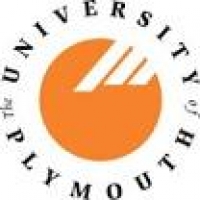






Ever wondered what or how people read in the past and how what is going on in the world impacts upon how we read and write? Combining critical and creative practice, this course gives you the opportunity to study the literatures of different periods and cultures, produce creative writing, and draw on insights from a range of other disciplines. French French is one of two modern languages which are taught to honours degree level. Entry to the French minor requires you to have reached A level standard in French. You are taught by an experienced team of specialists with research interests in contemporary cultural studies, the language of business and politics, advertising and modern history.
| Number | Duration |
|---|---|
| 3 | year |
ENGLISH: CAREER OPTIONS Information provided by our Careers & Employability Service Fran, our Careers Adviser for English, says: "Although choosing a non- vocational degree, English graduates are equipped with a broad range of transferable skills, making them an attractive prospect for employers across a diverse range of careers. Further study is a popular and sometimes necessary choice for English graduates, whether they opt for a career specifically related to their degree or choose to convert to a different vocational pathway. Long term employment prospects are good for English graduates, who have a wide range of careers to choose from, but who typically favour work in the areas of publishing, journalism, librarianship, the arts, administration, teaching and media related careers. The NHS and public and private sectors are also popular choices." Visit the Plymouth University Careers website for more information on any of these areas, or call in to see the Careers & Employability Team in Gateway in the Roland Levinsky Building. Skills you can develop during this course include: Critical reasoning and analysis Self-reflection Time management Planning and researching written work Articulating knowledge, concepts and theories Relevant Work Experience A degree in itself is no longer enough to convince employers that you have skills set that they are looking for. Meaningful work experience is particularly necessary for those undertaking non- vocational degrees and can be extremely beneficial for those who have yet to find an occupational focus. You will also find that more challenging work experience will give you the edge over other candidates with the same qualification, add value to your degree and give you greater confidence when applying for jobs. Work placements, internships and voluntary work are all great ways of adding value to your degree, so be proactive and start building your skills portfolio from your first year of study.